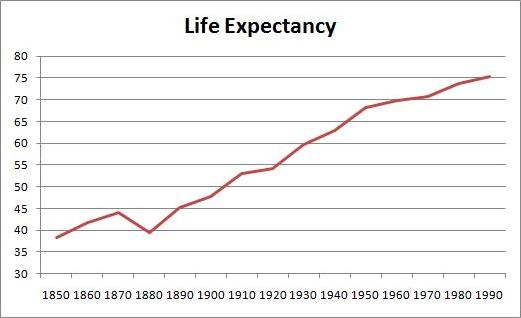Originally posted by Kung Wu
View Post
One of my favorite topics.
1) Early adopters of new technology always pay a premium for the new technology (pharmaceuticals are just techology).
That's a good thing -- without investors recovering their dollars from early adopters, there wouldn't be innovations and cures. Over the long term, in a free market, those prices always come crashing down; patents expire, competition invent substitutes, costs get spread among many people. However is healthcare operating in a free market? ... that leads to 2...
2) Did you know that Medicare/id pays whatever the drug companies set as a price, with no free market check/balance system to cause prices to fall?
Prior to 1965, when Medicare was not involved, the price of drugs was kept at bay by insurance companies that negotiated the prices down on behalf of the consumer paying those premiums. With Medicare patients, we the taxpayers have no advocate to drive drug prices down. They will eventually drop, for the reasons stated above, but not at the normal free market rate that we should expect.
3) There has _always_ been advanced medical technology (at least since the industrial revolution), and all of it came with a price tag; and that price tag was certainly built into the cost of healthcare prior to 1965.
Did you know:
* A cure for polio was invented in 1952.
* The first open heart surgery was performed in 1951.
* The pacemaker was invented in 1952.
* DNA was discovered in 1953.
* The first organ transplant occurred in 1950.
* Penicillin was invented in 1945.
* A cure for tuberculosis was invented in 1943.
* The kidney dialysis machine was invented in 1944.
* The first heart cath procedure was done in 1941.
* Anesthesia was invented in 1942.
* A cure for yellow fever was invented in 1935.
* The first blood transfusion took place in 1930.
* A cure for typhus was invented in 1937.
...
More here (these are neat reads actually): 1950s, 1940s, 1930s
I could go on ... but the notion that curing diseases began in 1965 and is the cause of our disaster of a healthcare situation is ludicrous. The notion that curing diseases drives costs up is also ludicrous. Keeping people out of hospitals by curing them drives DOWN costs.
4) Did you know that "More than 75% of health care costs are due to chronic conditions." In other words, curing people with very high priced drugs for a year is still way favorable to keeping them in a hospital or on a lifetime of medicines.
5) Did you know that only 9.7% of the total spend on healthcare goes toward prescription drugs?
Folks, that means in 1960, of the 1% total healthcare spend of GDP, we spent only about 0.1% of GDP towards prescription drugs in 1960. In 2014, we should be paying about 10% of 1.75% ... or about 0.17% of GDP in 2010. Our total healthcare expenditure as a percent of GDP is currently 16.4% and climbing ... 10% of that is 1.6%.
Again this argument is a FULL MAGNITUDE off of the trajectory we were on prior to 1965.
No ... drug pricess and technology are not the problem.





Comment